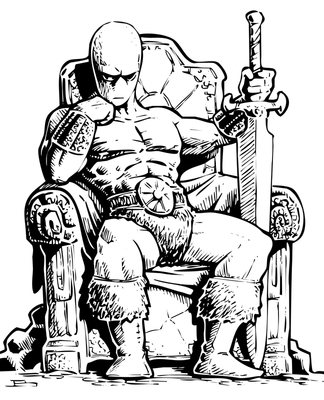 You finally get your friends around the table for a night of dice rolling and storytelling. You’ve been looking forward to this all week, and have prepared a fantastic adventure. But somewhere along the way, the night of laughs and mayhem turns a little sour, the game begins to lull, or you find yourself unsure of where to take the story next. In the middle of a gaming session, tensions can get high and emotions can spiral out of control. Many gamemasters have expressed a desire to solve their issues at the table, or keep trudging through a slow combat scene. Whatever their reasoning, some GMs dislike the idea of taking a break, as if it says something about their abilities. The truth is, a well-placed break can keep a game going and help relieve tension. Here are five instances where I have it found helpful to take a step away from the game table and collect my thoughts. 1) Tensions Are High Angry players are a very tricky problem for running a smooth game. Whether they are unhappy with one of your rulings, the decisions of another player, or something as simple as bad luck, this is a perfect time to call for a break. It is important to remember that you shouldn’t be taking this break in order to find a way to prove you are “right” in a rules argument or something similar. Instead, state you want a break so everyone can cool off and come back to the table with leveled emotions. Stepping outside for a moment or simply distracting yourself with your phone can be a good way to get your mind off of things for a few minutes. 2) For The Sake of Drama Perhaps the NPC who hired the heroes turned out to be the villain, or the scorned lover of one of the heroes just showed up seeking vengeance. Whatever drama has just presented itself in the story, this can be a great time for the players to take a bathroom break, refill their drinks, and bust out fresh snacks. During the break, a dramatic revelation will probably come up in conversation, and players will inevitably find themselves headed back to the table feeling ready to see what will happen next. 3) Collect Your Thoughts You can’t prepare yourself for every situation, and eventually the players will do something that knocks you for a loop. Perhaps they are fixated on an NPC you considered relatively unimportant, or they have decided to leave behind the evil necromancer to loot the ancient wizard’s tower they heard about several adventures ago. Players can be a fickle and unpredictable bunch; there is nothing wrong with taking a bit of time to figure out how you wish to proceed. 4) Distracted Players We’ve all been in this situation. You’ve planned out the perfect encounter and are ready to reveal the villain’s master plan, when you notice the player next to you is Googling something unrelated on their phone. A player on the other end of the table is stacking dice as high as they can before it comes crashing down with a resounding clatter. Don’t take it personally, sometimes we all just need a change of pace for a few moments to renew our sense of focus. Sitting in one place for too long can be enough for some players to lose interest, so let them get up and stretch their legs! 5) Uncomfortable Player As a gamemaster, it is vital to be sensitive to the wants and needs of your players. This is particularly important with touchy subjects like politics, race, gender, etc. If a player is acting awkward at the table, they may be uncomfortable with the topic at hand. Hopefully, you’ve established at the beginning of your campaign exactly what topics you planned on covering, so players know ahead of time what will be discussed. Regardless, something may come up that feels unsafe to a certain individual. Confronting them right there at the table could easily make the situation worse; so instead, simply call for a break and take the player aside and ask them how they are. Their problem may not be related to the game at all, but it’s always a good idea to check. Implementing a tool like the X-Card can be very beneficial as well. No one is perfect, and eventually we’re all likely to need a breather every now and then. As the GM it is our job to facilitate fun, and sometimes that means stepping away from the game, even if it is just to grab more pretzels. Nathan Carmen is the founder and head writer of the Indie RPG company, Tricky Troll Games. Nathan loves building worlds and improving his craft when he’s not busy parenting. Reach Nathan at [email protected] or check out the TTG website at https://nathanccarmen.wixsite.com/trickytrollgames Art provided by JESHIELDS. Find and support his work at https://www.patreon.com/jefantasy Leave a Reply. |
All blog materials created and developed by the staff here at High Level Games Archives
April 2023
Categories
All
|
Proudly powered by Weebly



 RSS Feed
RSS Feed